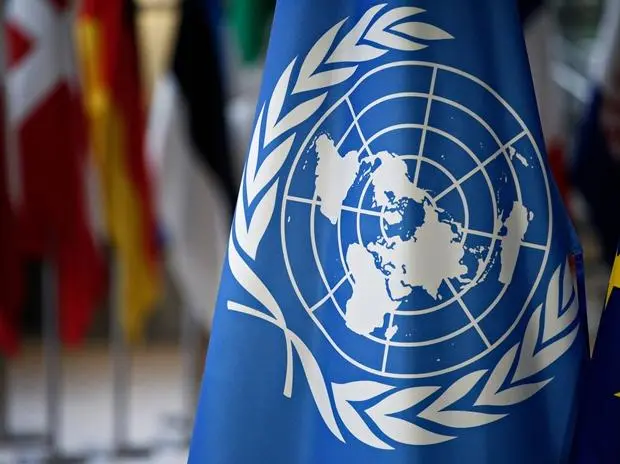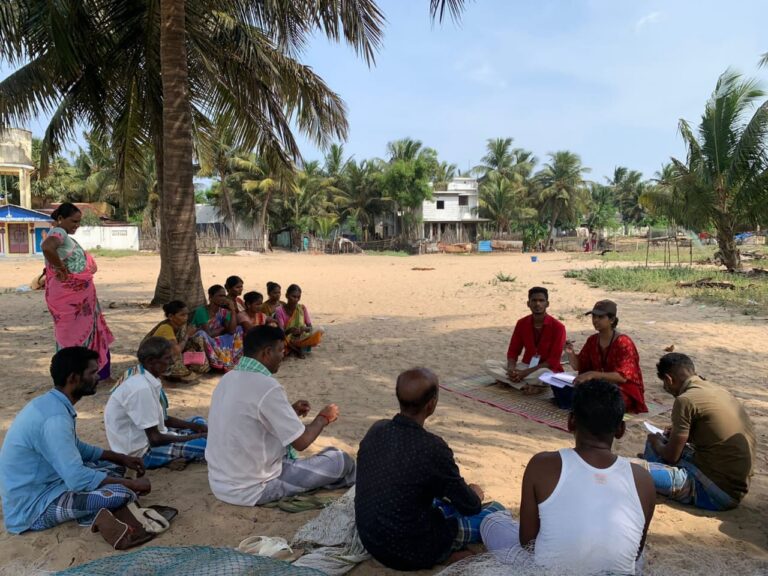Peace is not merely the absence of conflict; it is the foundation for thriving societies and prosperous economies. It is a collective responsibility that contributes to realizing the Sustainable Development Goals (SDGs). For businesses, the SDGs can be envisioned as a comprehensive blueprint guiding them toward long-term triumph. In essence, as businesses wholeheartedly embrace the principles of SDG 16 focusing on peace, justice, and robust institutions actively cultivating partnerships aligned with SDG 17, they pave the way for lasting impact.
In today’s world, where youth constitutes the largest demographic, fostering employment opportunities and investing in green skills emerges as pivotal for both peace and economic prosperity. The active involvement and innovative contributions of youth and women are indispensable in this regard, necessitating their identification as key stakeholders and partners in the pursuit of SDGs.
Numerous businesses, organizations, and governments have actively engaged in peacebuilding initiatives, aligning themselves with the SDGs and championing global peace. They acknowledge the role of leaders who drive positive change, provide guidance to businesses in promoting peace, and extend grants and advisory services to amplify the impact of peace efforts. This collective recognition underscores that peace is not only a moral imperative but also a strategic advantage.
The theme for International Day of Peace 2023 is ‘Actions for Peace: Our Ambition for #GlobalGoals’. It underscores that peace necessitates collaborative endeavors aimed at nurturing a culture of peace for all.
Importance of Peace for the World and the Economy
Research indicates that peace brings with it economic prosperity, lower inflation, and increased employment opportunities. Conversely, violence and conflict exact a staggering cost on the world economy—more than $14 trillion annually, equivalent to $5 per person on the planet, as of 2019. This cost encompasses both the direct economic impact and the broader social consequences, such as poverty, inequality, and the displacement of millions.
To illustrate the profound impact of conflict on both economies and the SDGs, consider the following examples:
- Libya: The conflict in Libya disrupted its oil production and exports, responsible for over 90% of the country’s revenues. As per the World Bank report on the economic impact of conflict and violence in Libya, the country’s trajectory for economic recovery will remain linked to the security and political environment. Implementing urgent reforms will increase the likelihood of a successful resolution and recovery.
- Syria: The IMF has published a report on the economic impacts of the Syrian conflict. The report calculates that the war caused a loss in Gross Domestic Product of US$226 billion, or four times the GDP in 2010.
- Sri Lanka: As per the United Nations reports and the SDGs Report 2022, the 26-year civil war in Sri Lanka led to an estimated 100,000 deaths and 800,000 displacements. Conflict in Sri Lanka has raised food, fuel, and fertilizer prices, disrupted supply chains, and damaged financial markets
Creating Employment Opportunities and Reducing Poverty
Integrating peacebuilding strategies into CSR efforts involves a holistic approach that not only focuses on profit but also considers the well-being of communities in conflict-affected areas. Actively engaging with local stakeholders and supporting small businesses, can create employment opportunities, and reduce poverty. Following are a few steps you can incorporate peacebuilding strategies in businesses and CSR efforts to align with SDG 16.
- Building Trust through Participatory Intergenerational Dialogue: Organizations such as ICRW and UNDP Asia Pacific share that recognizing that youth & women are not a homogeneous group and acknowledging them as stakeholders and partners rather than mere beneficiaries or volunteers is key to successful CSR implementation and sustainability. Engaging youth in meaningful dialogues fosters trust, understanding, and collaboration.
- Understanding the impact of Violence and Conflict on the Global Economy: As per the World Economic Forum, the ripple effect of conflict extends far beyond its immediate victims. It hampers productivity, trade, healthcare, education, and human development. Peacebuilding addresses the root causes of conflict, such as poverty and inequality, and contributes to achieving the SDGs. For example, it promotes gender equality, reduces hunger, improves education, and strengthens institutions.
- Conflict-Sensitive Business: UNDP guidance emphasizes adopting a conflict-sensitive approach means considering the potential impact of business activities on conflict dynamics. This approach seeks to minimize harm and maximize positive contributions to peace. It involves conflict analysis, stakeholder engagement, respect for human rights, and support for peace initiatives. Conflict-sensitive businesses enhance their reputation, reduce risks, discover new opportunities, and create shared value.
- Innovation in Conflict Zones: Innovation is helping conflict-affected people around the world including the use of technology and creative solutions. Operating in conflict-affected areas is challenging due to factors like insecurity, instability, corruption, and poor infrastructure. However, businesses can innovate to overcome these hurdles and achieve SDG targets by providing access to essential services, renewable energy, and social entrepreneurship empowering local communities to create sustainable livelihoods.
Intersectionality and Peace
Understanding the impact of peace on different groups of people requires an intersectional lens. Women and girls, for instance, are disproportionately affected by violence and conflict, with their voices often marginalized in decision-making. To address this, we must acknowledge the unique experiences and needs of various groups, including LGBTQ+ individuals and people with disabilities, in conflict situations. An intersectional approach ensures inclusivity and equity in our peacebuilding efforts.
Embracing Peace as the Path to Prosperity
In a world grappling with intricate challenges, peace is a pathway to sustainable development, economic prosperity, and social equity. Embracing conflict-sensitive practices and prioritizing green skilling, businesses, and governments can pave the way to a future where the ideals of the International Day of Peace aren’t confined to a single day but are lived out every day.
As Martin Luther King Jr. aptly put it, “Peace is not a distant dream that we seek, but a means by which we arrive at that goal.” It’s a tangible reality within our reach if we unite our efforts and work collectively to make it a reality.




